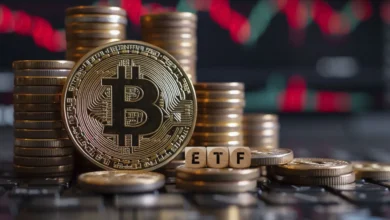Challenges Facing Bitcoin’s Global Recognition and Regulation”

In recent times, with Bitcoin’s price surging once again and briefly surpassing the $52,000 mark, discussions surrounding Bitcoin have been reignited. Its market value has soared to $1.015 trillion, surpassing globally renowned companies like Tesla (TSLA) and TSMC (TSM), making it the tenth most valuable asset worldwide.
However, Bitcoin has not yet achieved universal legal status worldwide. The journey towards its regulation is still fraught with challenges, with many countries implementing strict measures to restrict various Bitcoin activities, particularly through mining bans aimed at curbing the creation of new Bitcoins.
Why is Bitcoin struggling to gain national approval?
1. **Regulatory Difficulties:**
Bitcoin operates without issuance or control by any central institution or government, challenging traditional monetary systems. Its pseudonymous nature makes it an ideal tool for illegal activities like money laundering and illicit financing, making regulation challenging. As a result, many regions impose restrictions on Bitcoin transactions, sometimes leading to outright bans.
2. **Conflicts with Monetary Policy:**
The decentralized nature of Bitcoin can impact the implementation of national monetary policies, especially during economic instability. People may turn to Bitcoin as an alternative to circumvent risks associated with their national currency. Bitcoin’s ability to facilitate cross-border payments challenges the monetary policies of many countries, potentially leading to capital outflows and a decline in the value of the national currency.
3. **Security and Fraud Concerns:**
Bitcoin transactions, relying on the internet and blockchain technology, are susceptible to online hacking and fraud. According to SlowMist Security Company, there have been 1,441 blockchain-related hacking incidents, resulting in a total loss of approximately $31.93 billion.
4. **Environmental Concerns:**
Bitcoin mining consumes a significant amount of electricity, some of which comes from coal-generated power, leading to substantial carbon dioxide emissions. This environmental impact has prompted some countries to ban Bitcoin mining.
From the analysis above, it is evident that Bitcoin’s struggle for widespread national recognition stems from its involvement in complex fields such as law, economics, technology, security, and the environment.
Despite these challenges, some countries maintain an open stance towards Bitcoin. However, this is the current situation, and it is crucial to fully understand and adhere to the latest laws and regulations in your country or region.
Regions where Bitcoin mining is regulated:
1. **Australia:**
The Australian government does not have specific laws targeting cryptocurrency mining, and mining activities are generally regulated through existing business and tax laws.
2. **United States (most states):**
Most states in the U.S. explicitly allow Bitcoin mining, but there are variations in specific mining regulations and electricity costs between states.
3. **Kazakhstan:**
In February 2023, the Kazakh government issued new regulations, providing a legal framework for cryptocurrency assets and mining activities.
4. **United Arab Emirates:**
The UAE adopts an open approach to Bitcoin mining, benefiting from its political stability and business-friendly environment.
5. **El Salvador:**
El Salvador became the first country to adopt Bitcoin as legal tender, maintaining an open stance towards cryptocurrencies.
It is essential to note that policies of some countries or regions may change. Therefore, before engaging in Bitcoin mining in any destination, understanding the latest local laws and regulations is necessary.
As of now, many countries, including China, Morocco, and Nepal, still prohibit cryptocurrency-related activities such as Bitcoin. With the continuous evolution of cryptocurrencies and the gradual improvement of international regulatory frameworks, more countries are likely to accept cryptocurrencies like Bitcoin.
Important Notice: Disclaimer Regarding Financial Advice
The information presented in this article is intended solely for informational purposes and should not be considered as financial advice. Coinshiba.online disclaims any responsibility for investment decisions made by individuals relying on the information provided herein. It is highly recommended to consult with a qualified professional or financial advisor before making any investment decisions. Your financial well-being is crucial, and seeking expert guidance ensures that your investment choices align with your individual financial goals and risk tolerance.




